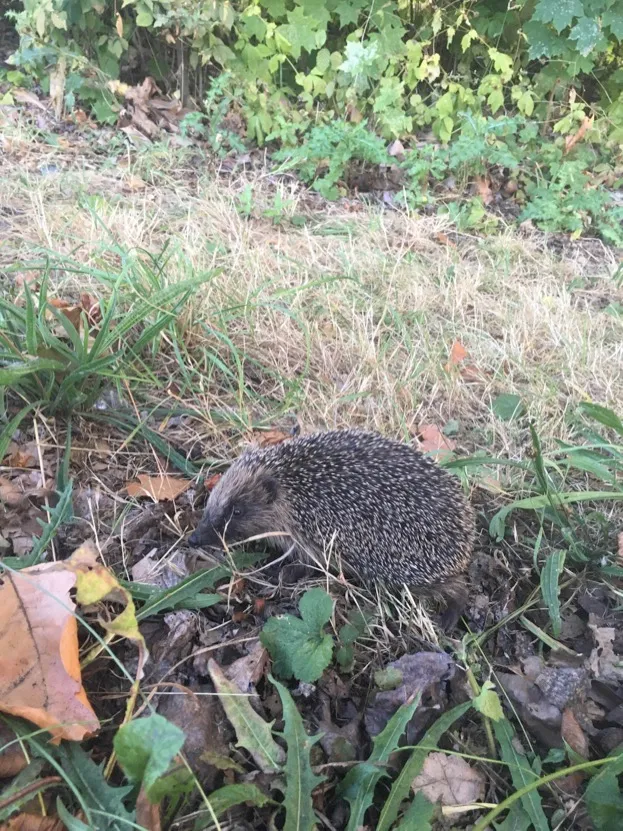It might not look like much, but this footage shows an animal at the centre of a prickly dispute.
On one side, the multi-billion-pound HS2 project, which wants to turn part of a small car park on the edge of Regent’s Park into a holding facility for lorries delivering materials for the redevelopment of Euston Station.
And on the other, ZSL – better known as London Zoo – which says HS2’s plans could spell the demise of the last hedgehogs in Central London.
Until a few years ago, very little was known about the hedgehogs that live in Regent’s Park.
A proper study run by the Royal Parks Foundation only began in May 2014, and now we know it’s a tiny population of just 25 breeding adults.
Fieldwork has also discovered that 25 per cent of these hedgehogs make use of the scrubby habitat around the zoo’s so-called Gloucester Slips car park in the north-east corner of the park.

Strangely, this whole area covers less than 1.5 hectares, and the scrub habitat just over 0.5 of a hectare, while the rest of Regent's Park stretches over some 170 hectares.
And yet, according to ZSL's scientific director Prof David Field, the hedgehogs using the car park may act as a feeder population for the rest of the park.
But they don’t know why. “We’re not sure why they prefer the car park to any other areas, and why they don’t like some of the other areas,” Prof John Gurnell, an expert in small mammals at Queen Mary’s University, told a House of Lords select committee in mid-September. “That would require a lot more in-depth research.”
ZSL is particularly concerned that the way in and out of the proposed lorry park will cut off an area of scrubby grass, brambles, sycamore saplings and crab apple trees, meaning the hedgehogs will no longer be able to access it.
HS2 has suggested putting a small tunnel under the entrance to avoid it fragmenting the habitat.
But Field said: “We have struggled to find any examples of hedgehog tunnels that have been used before.”
And he added: “We would need at least a year to trial them. If you have this road and a tunnel going underneath it, and the hedgehogs don’t use it, you’ve suddenly got all this green space that is no longer available to them.”
There was a danger that the hedgehogs would be tempted to go further afield, possibly onto the roads surrounding the park, increasing the odds of them being run over, Field said.
In response, HS2 said it would work with ZSL and the Royal Parks to get the right mitigation measures for the proposed works and claimed that tunnels were a practical solution.
It cited a study that found tunnels built under nine major road schemes across England were extensively used by badgers, with some - not quantified - evidence of hedgehog use, too.
“The protection of all wildlife, including hedgehogs, will be a key consideration in the design of the holding area and for any replacement parking that may be required,” a spokesperson said.
David Field said ZSL was determined to protect the hedgehogs. “Our fundamental mission is to save animals and habitats,” he said. “How can we go and talk to governments in Indonesia about the best way to run their businesses in support of wildlife, if we can’t do it in our own backyard.”
Britain's hedgehog population has declined by 35 per cent over a 15-year-period and is now estimated to be less than 1 million animals. “If we can find out why this car park is better than the rest of the park, that’s going to be crucial for managing hedgehogs elsewhere," Field said.
A poll of 9,000 BBC Wildlife readers in 2013 found that 42 per cent wanted the hedgehog to be the UK's national symbol, like the bald eagle is in the USA or the kiwi in New Zealand.
Main image: There are an estimated 25 hedgehogs left in Central London – and now they're under threat. © Tony Walls
